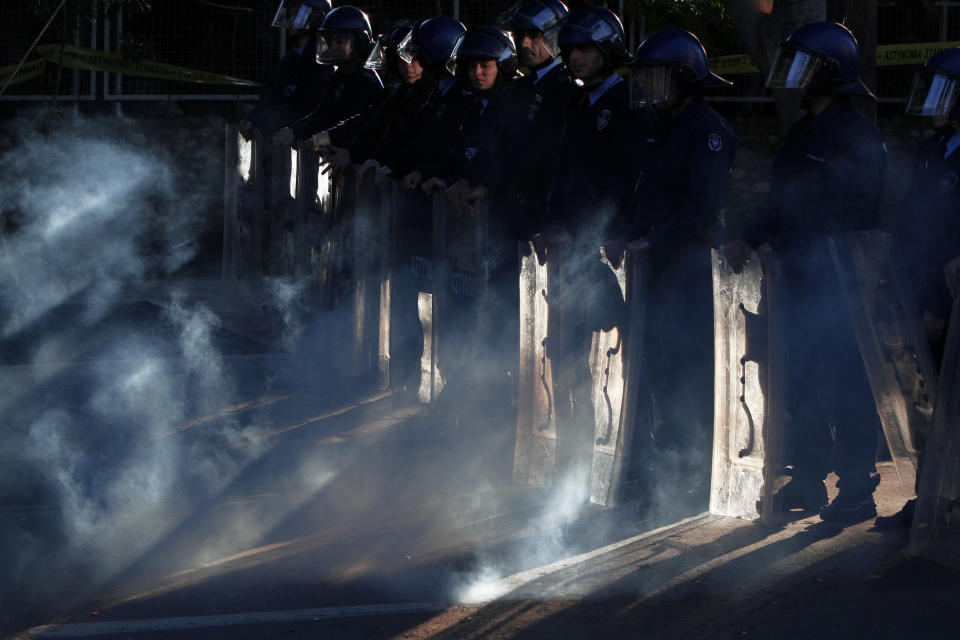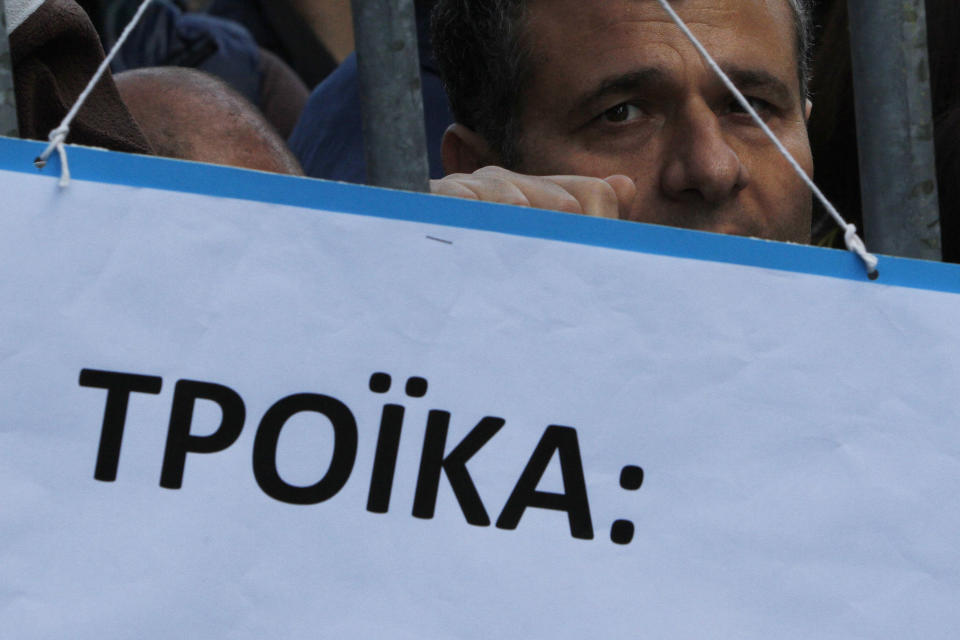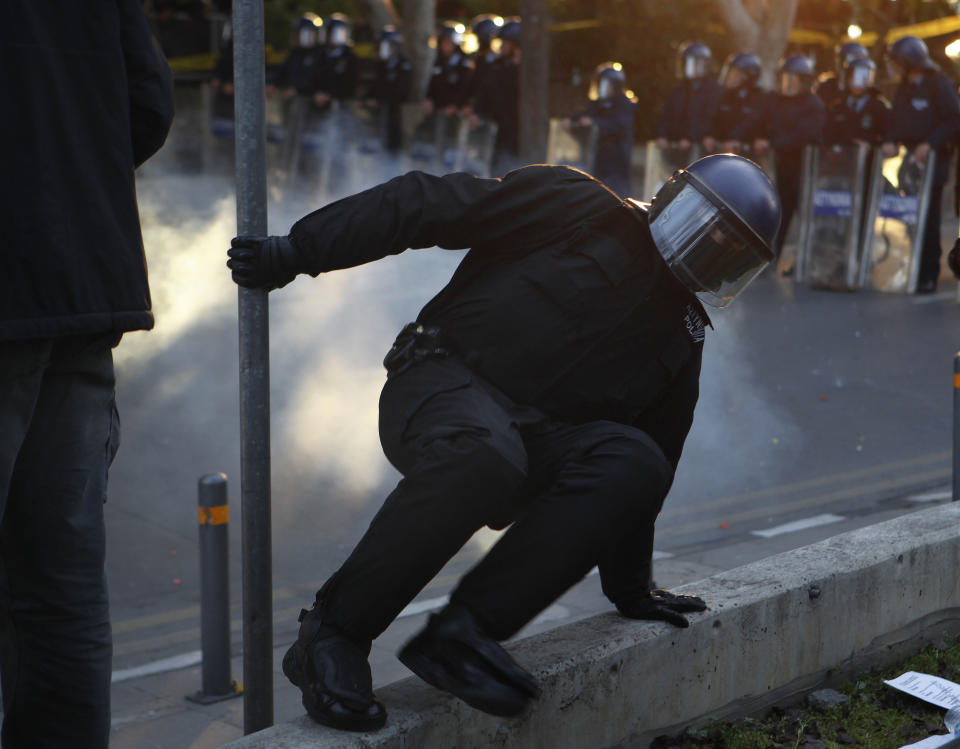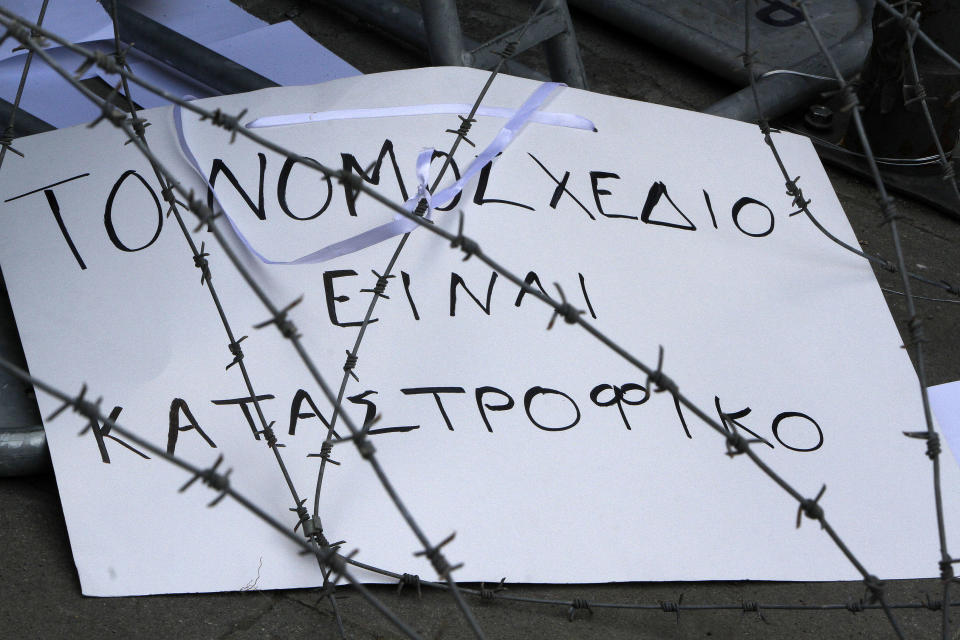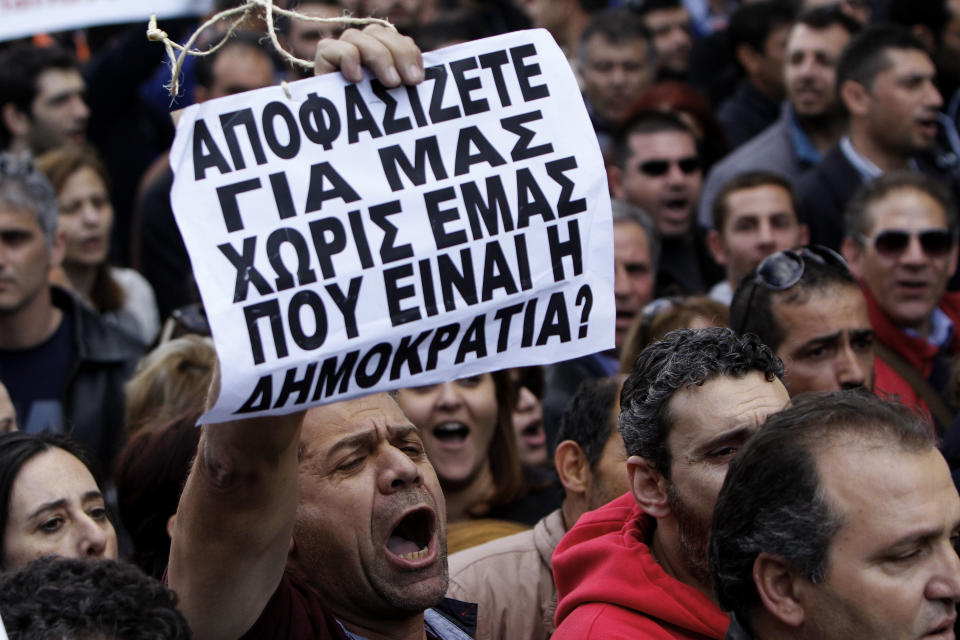Cyprus parliament turns down privatization bill
NICOSIA, Cyprus (AP) — Cyprus' lawmakers on Thursday effectively forced the government to revise the terms of legislation that would pave the way for the privatization of state-owned companies, a condition of the debt-laden country's rescue deal with international lenders.
The vote throws into doubt whether Cyprus will receive the next batch of bailout money that the government said is necessary to stave off bankruptcy in the next couple of months.
The country has until March 5 to pass the legislation which several parties including left-wing AKEL and socialist EDEK had staunchly opposed.
Lawmakers voted 25 in favor, 25 against and five abstained. The tie meant the legislation was turned down.
Parliament will again vote on an amended bill probably next week, a lawmaker told The Associated Press on condition of anonymity because he didn't want to pre-empt a formal announcement.
"Privatization is a necessity," Averof Neophytou, leader the ruling right-wing Democratic Rally Party, told state broadcaster CyBC. "I hope that wisdom will prevail in the next few days."
AKEL leader Andros Kyprianou told parliament before the vote that his party would not consent to the "sell off of the nation's wealth" and denounced what he called the "blackmail" of international lenders.
Kyprianou and EDEK lawmaker Giorgos Varnava said the government has to renegotiate the bill and speak to parties on alternatives.
Center-right Democratic Party had suggested it would support the bill, but five of its lawmakers abstained because the party's proposed amendments safeguarding jobs and benefits at privatized companies were rejected.
Cyprus government spokesman Christos Stylianides said in a written statement late Thursday that the Cabinet will deal with the bill's rejection the following day "to forestall unpleasant developments and to maintain the country's economic recovery and stabilization."
Privatizations were a key component of the country's 10 billion euro ($13.66 billion) bailout Cyprus agreed with other euro area countries and the International Monetary Fund last year.
Lenders have lauded the country in three consecutive assessments for meeting or exceeding the terms of the rescue.
Hundreds of people had gathered outside parliament to protest against the bill, including workers from the country's electricity, telecommunications and ports authorities that are slated for privatization.
